Governments
Created | Updated Feb 6, 2005
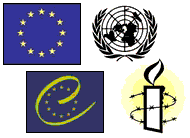 A Brief Guide |
The Government is the ruling regime of a nation or area. There are various different sorts of Governments. The most common types are, Democracies, Fascist regimes, Communist regimes, Monarchies, Dictatorships and Theocracies. Governments can either be representative - e.g. democratic or non representative - e.g. fascist. Then there are the ideologies such as communism, which in theory is ultimately representative but which in practise has been utterly unrepresentative - which makes for interesting arguments with Socialist Worker party members in the university coffee bar.
Democracy:
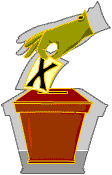
Founded by the Greeks. The principals of democracy - that the government be ‘of the people, for the people, by the people’ - are held very dear by those countries who have embraced it. And indeed, it can be seen to be a noble cause for people to be governed by their own choice of leadership. Most democracies operate by electing officials from a limited choice of political parties, for a set term of roughly four or five years, after which, the people get to vote again and either reselect their rulers or hand power over to a different choice.
PROS AND CONS:
Pros: Most democracies only allow a government to rule for a few years. The relatively short period of time that officials are guaranteed office for, has much to recommend it. Firstly, it allows for some structure in terms of a ruler knowing how long they have to indulge in post election strategies. This translates loosely as infringing on civil liberties and raising taxes, which are usually used to pay their friends in industry to undertake worthy projects. This will then move the government to the traditional mid-term unpopularity - allowing the opposition to get a bit hopeful. In the fullness of time, the government can then revert once more to pre-election strategies, such as infringing on civil liberties and tax cuts, whilst making speeches about nurses, education, ‘the need for security’ and ‘putting more bobbies on the beat’, to make themselves popular again.
Secondly, it means that if the government is behaving very badly, it won’t be very long before the people have the chance to make their feelings known, in which case if they then re-elect the same lot, they have no one to blame but themselves. 1
Cons: Most democracies only allow a government to rule for a few years. The negative side of the short period of guaranteed office, tends to be that no politician ever thinks in the long term but sticks to the Keynsian dictum that, there’s no point worrying about the future because ‘in the long run, we are all dead’. This has meant that democratic governments have failed to deal with issues such as climate change or smoking because nobody wants to go to the polls with the opposition pointing out that they’re the bastards that banned our cars and fags.
Secondly, the principal of everybody having their say, whilst noble in intent, tends to produce some unfortunate results, because although everybody of adult age has a right to vote, people in general, do not tend to exercise the right with the responsibility they should. Hence, relatively evil rulers have remained in power by bribing the electorate with tax cuts and fear mongering whilst more progressive governments have been ousted because nobody wants to have to actually pay for all those ‘bobbies on the beat’.
Final thoughts....
One last issue with regard to representative government is that of how representative it actually is. While in principal, in a democratic society, it should be possible for anybody to rise to power if they have the mandate of the people, in practise, the rich elite, who have been privately educated 2 get all the plum jobs. This means that although the ethos of the different parties may differ fundamentally, in practise, the sensibilities of the individuals concerned are unlikely to be poles apart. This in turn means, that despite the to-ing and fro-ing of different parties, nothing much actually seems to change - or as the late comedian and philosopher Bill Hicks said “It doesn’t matter who you vote for, the government always gets in.”
The final flaw with democracy is that political office is usually sought out by greedy, self-righteous egomaniacs who think they have a right to tell everybody else what to do. Being voted into power by several million people, does nothing to calm those traits.
Fascism:

The alternative to democracy is a non representative government. This means that the people have no say in who is in charge. The name Fascism was coined by Mussolini from the Italian for fascio - union - which suggests a nation operating as one. Unlike democracy - which seeks to represent as wide a viewpoint as possible, usually at the expense of any actual achievement (committees rarely achieve anything beyond naming themselves and often fail at that) - fascism seeks to unify people behind their national identity.
PROS AND CONS:
Pros: Having a strong sense of national identity can make a country feel confident on the world stage.
The main advantage of non-representative government is that politics ceases to be a popularity contest and therefore, because a leader does not have to worry too much about being ousted, he or she can effect real change in their nation. Hitler undertook a rebuilding of Germany that was vital, Mussolini got the railways running, redistributed wealth etc
Also, the sense of national identity can instil a strong sense of pride - SIngapore for instance, is renowned for being amazingly clean.
So, if a fascist state is lucky enough to have a benign dictator, they may well live in a very clean, well ordered, affluent society.
Cons: Having a strong sense of national identity can make a country feel confident on the world stage.
The main disadvantage of fascism, is that that ‘national identity’ can become a bit of an obsession and those members of the nation who don’t agree or fit into the national identity, are usually rounded up and shot. No amount of train punctuality will compensate for worrying about the police smashing your window in and arresting you in the middle of the night because you happened to complain publicly about your dear leader.
Also, the sense of pride felt about one’s sense of national identity can lead to an utter lack of proportion - Singapore, for instance, is renowned for making chewing gum against the law because it makes the pavements dirty.
So, if a fascist state is not lucky enough to have a benign dictator, they may live in constant fear.
Final thoughts....
Obviously, the main problem with non-representation is that if a leader is not behaving well towards his people, then military power is required to remove him - which is a lot more unpleasant than a general election, although does save one having to sit through party political broadcasts. Perhaps the main cause of the problem is the manner in which fascist dictators rise to power - as this is usually by force. Very few nations have genuinely elected someone who promised never to let them vote again.
The main flaw then, is that those who think they ought to be in charge - whether their country likes it or not - tend to be greedy, self-righteous egomaniacs who think they have a right to tell everybody else what to do and not having been voted into power by several million people, does nothing to calm those traits.
Communism:

Communism was originated by Karl Marx, who designed it, in noble terms, to be the means by which the workers would own the means of production. In layman’s terms, this means you would be as well off as your boss. Obviously, that sounds pretty good - as long as you’re not the boss.
Of course to bring this about, you have to either persuade the boss to part with ‘the means of production’ or if he isn’t keen you’re going to have to force him into sharing. The act of force, somewhat undermines the ideal and a bloodbath followed by several decades of oppression have been the general trend. Cuba is the only thing that can be described as remotely successful and that’s only down to a belligerent desire to piss off the Americans.
PROS AND CONS:
Pros: In principal, the ideal is wonderful. Everybody is equal, people work at the professions they are good at for the honour and the man who builds the road is as important as the president.
Cons: In practise, stupid people are still stupid, lazy people are still lazy and bothering your arse to improve yourself can be hard to get worked up about when you’ll still be driving a Lada.
To summarise then, when the human ideal meets human nature, the ideal usually loses.
Monarchy:
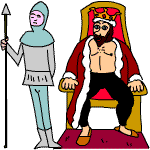
Monarchy has been the traditional means of rule, throughout many societies for countless generations. A King or a Queen, deemed to have been appointed by God - by dint of the fact that they were born next in line to the throne, is in charge of the nation until they die, when the next in line will take charge.
PROS AND CONS:
Pros: The role is for life, so it tends to be important to look at the long term view, which can lead to great stability for the nation. Additionally, the role is something that one is born to - not an office which is sought, which can lead to a more suitable person actually being in charge.
Cons: The role is for life, which means with a bad candidate, you’re knackered - and complaining about it constitutes treason. Additionally, royalty tends to like to keep itself to itself, so as the genetic pool narrows, suitable candidates get less and less frequent and insane ones with only one eyebrow become less and less rare.
Historically, the divine right of a monarch was anyway, often usurped by means of a poison chalice or a hearty shove down one of those spiral staircases, castle architects appear to be so entranced with. This can be seen to cast doubt on the assumptions of a divine right to rule - but maybe politically motivated stabbings are part of Gods plan - he does move in mysterious ways after all.
In practise now, most monarchies are only for show and have some sort of functioning democracy actually in charge, rendering the monarch obsolete for purposes of power but useful for keeping tabloid newspaper editors occupied.
Dictatorships:
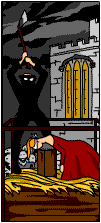
A dictator is one who seizes power and holds on to it without allowing any representation by his people. All politicians would secretly like to be dictators - if only to be able to put satirical cartoonists in Jail for making their noses look obscenely large and amusing *. Therefore, Dictatorships are somewhat like one term only monarchies, except the divine right of kings is replaced with the divine might of international arms trading. Of course, in some cases, a dictator will actually pass the power on to an heir - which is presumably how the whole monarchy thing got started, somewhat undermining the 'appointed by God' element of the pro monarchy arguements.
PROS AND CONS:
Pros: The international arms trade gets to keep several thousand people in employment.
Cons: Strutting around in gaudy military uniforms festooned with fake medals, dodgy moustaches and a worse human rights record than the USA, seem to be par for the course.
Dictatorships remain very popular - with dictators. The people who live in them, tend to hate them - but hey, who’s got all the guns?
Theocracy:
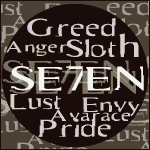
A theocracy is a state where the religious leaders hold office and are in charge of the political regime. These are becoming more and more rare but Taliban controlled Afghanistan was a recent, albeit unfavourable example.
PROS AND CONS:
Pro: a regime run by religion ought to be moral, spiritual and profoundly concerned with the welfare of its subjects.
Cons: Stonings.
In practise, most theocracies are much more profoundly concerned with punishing transgressions of holy law and a lot less concerned with getting the rubbish collected, than one might consider ideal.
In our increasingly irreligious society, the separation of church and state is, ironically, sacred to us. Hence theocracies are increasingly unpopular.
Will you tell the United States or shall I?
So Now What?
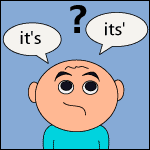
As it can be seen, all of the various options for government have serious and fundamental flaws. What other options are there open to us? It would appear there is only one left - no government, which bring us to...
Anarchy:

Anarchism is the political belief that society should have no government, laws, police, or other authority, but should be a free association of all its members. Alternatively, it is what politicians would like us to believe we would be reduced to if they weren’t there. For once, they’re right - but that doesn’t make the preaching any less irritating.
PROS AND CONS:
Pros: Obviously, this sounds great - no traffic wardens, tax, homework, brussel sprouts etc
Cons: No rubbish collections, law enforcement, road mending, hospitals, welfare state etc
Nobody likes being told what to do, therefore the idea of living without government may seem attractive. However, in practise, it won’t take long before someone will get fed up of people fly tipping in their garden, they’ll organise refuse collections and onsite security for themselves and their neighbours, extend it to the surrounding area, start charging the populace and the whole sorry government thing will begin afresh.
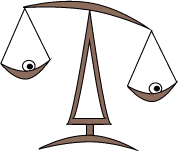
All leaderships are flawed but no leadership is impossible to maintain. Human nature spits in our coffee, whichever way we turn. Perhaps we should pull names out of a hat - it may be the only way to guarantee fairness.
For as a very wise man once pointed out, anybody who actively seeks power, is automatically unsuitable to own it.
Kim Deal
